ARCHIVE 3: WHAT MOTIVATES FAMILIES TO TAKE THE LEAP TO THE EDUCATIONAL PATH LESS TRAVELED?11/1/2015 written by Peter Bergson, OC Co-Founder What motivates families to take the leap to the educational path less traveled? (We want to hear from you!) In my previous column I discussed at length the concept that my Synectics, Inc. mentor George Prince called Impression Management. I described how wanting to appear capable and competent to others takes precedence over all other agendas (such as creative thinking) whenever we feel our esteem threatened. After all, who wants to appear stupid? This phenomenon is so universal that it seems natural, or innate, to us as humans. It is, however, a learned attitude and behavior, in my opinion, and hence one that we could un-learn under the proper circumstances, to the benefit of all humankind.
My primary reason for thinking that it is a learned behavior is due to its virtual absence in infants and toddlers whose basic physical and emotional needs are met consistently and generously. These young people feel loved, they trust the universe, and it doesn’t seem to occur to them that there would be anything wrong with expressing their thoughts and feelings outright or with exploring or experimenting with the world in whatever ways might occur to them. “Here’s a cabinet…I wonder what’s in it…Of course I may open it to find out, then remove the contents one by one to see what might interest me further.” Or “I want to communicate just like I see the big people doing, so I’m going to put my sounds out there to see if I can get other people to understand what I’m trying to say. If they don’t get it, I’ll keep experimenting with different variations until hopefully, eventually, either I’ll get it right or they’ll figure out what I’m trying to say.” When I first sat down to compose this column, I was wanting to discuss the challenge I have sometimes encountered with regard to helping parents take the leap into homeschooling as a way to foster self-directed education for their youths. I have long known how difficult it can be for some families to make the switch out of traditional schooling: they may view themselves as the “winners” in the Race to the Top and believe that their schooling was one of the primary reasons for their success. (In other words, they have drunk the Kool-Aid of our culture that ties economic success directly to school success in a direct one-to-one correspondence.) To give up the competitive advantage of “good schooling” requires a strongly prevailing counter force—something that convinces a parent that whatever schooling is available for their offspring is not the sort that has produced the truly happy and successful adults that they want them to become. Or, they become convinced that they can “do school” better and thus produce better results. (I know that this was part of Susan’s and my initial motivation.) Or, lastly, the parents’ own school experience was such that they did not want to risk repeating that sort of thing with their son or daughter. I have noticed that the pull to traditional schooling can be equally strong for families of all socio-economic backgrounds: from those families with severely limited financial resources to those who are (more) affluent. I know that the economics of homeschooling leads many people to believe that they can’t afford it due to their reliance on their jobs and hence custodial care. “How can I teach my son when I’m at work all day?” is a common refrain, and a legitimate one. But even after we explain how different families in a similar situation have worked it out, there is still what I believe to be a hidden fear of doing something differently from one’s peers (“the norm”), and thus being different. What will people say? Will I be criticized for doing the wrong thing?” Impression Management. Fear of rejection. It can run so deep in us all. So what is it that allows those who do take “the path less chosen” to take the risk of public disapproval (beginning with one’s own family) and eschew schooling in favor of self-directed education? Is it primarily discontent with one’s own experience as a youth? For some, I’m sure, but what about those parents who, like my wife, Susan, loved school and were winners? And why doesn’t a terrible/ dull and boring parental school experience motivate more folks to experiment with something different? Is it lack of assurance that the new option won’t be worse—for example, that their son or daughter won’t even have a traditional school diploma no matter how useless it may have proven to be? I have seen folks start to open up when they hear anecdotes and statistics about college admissions for homeschoolers—the lack of required grades and standardized test scores and such. Folks are also interested to learn how many highly successful (in economic terms) people there are, especially in the dot-com world, who didn’t graduate from college or even attend in the first place. Still, however, the fear lingers for some. I would really like to hear from parents—especially members of the OC community, past and present—who felt this pull back toward “normalcy” and who found the strength to go their own way. What made it possible for you to overcome your sense of negative judgment from your peer group? Or did you resolve that concern by changing peer groups?! How has OC helped support you in this process, and how can the organization continue to better/further support your family? Perhaps you are still feeling the tug of the cultural norm; if so, what keeps you resisting it and taking the imagined risk of being different? [Edited]
0 Comments
Leave a Reply. |
Blog Posts
For the most part, these articles first appeared in the Open Connections Magazine. If you would like to sign up for our mailing list, the posts will come right to you! Archives
March 2016
Categories |

 RSS Feed
RSS Feed

